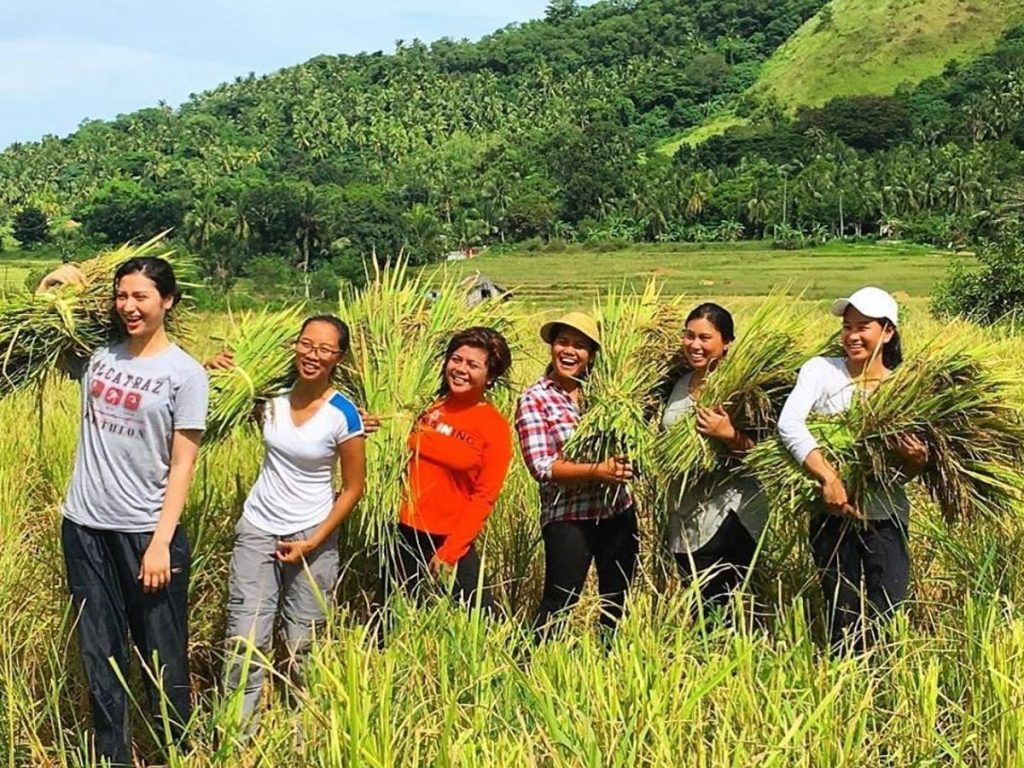Blending Ancient Wisdom and Modern Innovation: A New Dawn for Agriculture
The world’s growing population and the looming threat of climate change demand innovative solutions to ensure food security and environmental sustainability. A powerful approach is emerging, one that recognizes the invaluable wisdom of indigenous farming practices and blends them with the advancements of modern science and technology. This synergistic approach is proving effective in tackling global challenges, fostering climate resilience, and paving the way for a more food-secure future. From the remote islands of the Philippines to the floodplains of Bangladesh and the diverse landscapes of Madagascar, this fusion of tradition and innovation is transforming agriculture and empowering communities.
The importance of integrating indigenous knowledge into global strategies was highlighted at the 2024 Rio Conventions on biodiversity, climate change, and desertification. The Indigenous Troika, launched at COP29, amplified the call for indigenous voices to be central in climate negotiations, acknowledging their deep understanding of and connection to ecosystems. A landmark UN report further emphasized the crucial role of indigenous peoples and local communities in ecosystem protection, recognizing their traditional knowledge and values as essential components of effective climate solutions. This global acknowledgement reflects a growing understanding that addressing climate change and achieving sustainable development goals requires incorporating the wisdom of those who have lived in harmony with nature for generations.
Esther Penunia, head of the Asian Farmers Association, underscores the unique value of traditional knowledge, highlighting its holistic nature and deep understanding of the interconnectedness of nature, people, and all living things. This holistic perspective provides a framework for sustainable practices that consider the long-term health of the ecosystem. Modern technology, in turn, can amplify these traditional approaches, providing tools to improve efficiency, precision, and scalability. By combining time-tested methods with science-backed innovations, farmers can address current challenges while preserving the integrity of ancestral knowledge and fostering a more sustainable and resilient agricultural system.
The Philippines’ AGREA Agricultural Systems, founded by Cherrie Atilano, exemplifies this synergistic approach. Growing up on a sugarcane farm, Atilano witnessed firsthand the hardships faced by smallholder farmers. Inspired by the realization that farmers possess inherent knowledge of the land, she founded AGREA to empower them with the structure, economics, and scientific validation they need to thrive. On Marinduque Island, AGREA’s farm school provides a model for optimizing yields and building thriving food systems, demonstrating the transformative potential of this integrated approach. Atilano’s work focuses on empowering farmers with sustainable solutions tailored to their specific contexts, utilizing local resources and building on existing knowledge. This includes innovative uses of farm waste for organic fertilizers and the incorporation of readily available resources like fish entrails and seaweed to enrich the soil and improve crop yields.
In Bangladesh, the East-West Seed Knowledge Transfer Foundation, founded by World Food Prize laureate Simon Groot, works with smallholder farmers facing climate challenges like rising water levels, soil salinity, and flooding. The Foundation recognizes the inherent wisdom of farmers and engages in a two-way exchange of knowledge, providing farmers with climate-resilient inputs and training in sustainable practices while also learning from their deep-rooted understanding of the local environment. This collaborative approach has led to significant increases in vegetable yields, improving food security and livelihoods while empowering farmers to adapt to the changing climate. The Foundation emphasizes practical training and adaptable solutions, ensuring that the knowledge transferred is accessible and relevant to the specific challenges faced by farmers.
Ajinomoto’s Agro2Agri program provides another example of how cutting-edge science can complement traditional practices. Their tailored plant-based bio-stimulants boost crop productivity while reducing the need for fertilizers, leading to lower carbon emissions and more efficient water use. In Uganda, Ajinomoto collaborates with The Kafunjo Community Project, supporting indigenous farming practices like crop rotation and intercropping with the addition of bio-stimulants. This combination of traditional methods and scientific innovation enhances food self-sufficiency, reduces chemical inputs, and protects local water resources, demonstrating the power of collaboration to achieve sustainable development goals. Ajinomoto’s commitment to providing smaller, affordable packages of bio-stimulants further empowers smallholder farmers and expands the reach of their sustainable solutions.
In Madagascar, Sahanala empowers smallholder farmers by integrating traditional methods like the ady gasy pest control technique with modern tools like mechanized plowing. This approach preserves biodiversity while driving sustainable economic development. Sahanala provides training, market access, and support for health and education initiatives, creating a holistic framework for community growth and resilience. Their work underscores the importance of valuing indigenous knowledge and integrating it with innovation to create sustainable and equitable agricultural systems. By recognizing the interconnectedness of the value chain and supporting communities during lean seasons, Sahanala demonstrates a commitment to building a resilient and food-secure future.
From the Philippines to Bangladesh, Uganda, and Madagascar, these initiatives demonstrate the transformative power of blending indigenous wisdom with modern innovations. This approach not only benefits farmers and their communities but also offers significant advantages for businesses. By supporting sustainable practices and collaborating with local communities, organizations can secure stable supply chains, enhance product quality, reduce environmental risks, and foster innovation. Moreover, this approach aligns with growing consumer demand for ethically sourced products, creating shared value for businesses and farmers alike.
The global movement toward zero hunger and a more sustainable future requires a fundamental shift in how we approach agriculture. By listening to the wisdom of indigenous communities, respecting their traditions, and empowering them with the tools and knowledge of modern science, we can cultivate a future where everyone has access to nutritious food and where agricultural practices contribute to the health of the planet. The harmonious blending of ancient and modern wisdom holds the key to unlocking a truly sustainable and equitable agricultural system.


